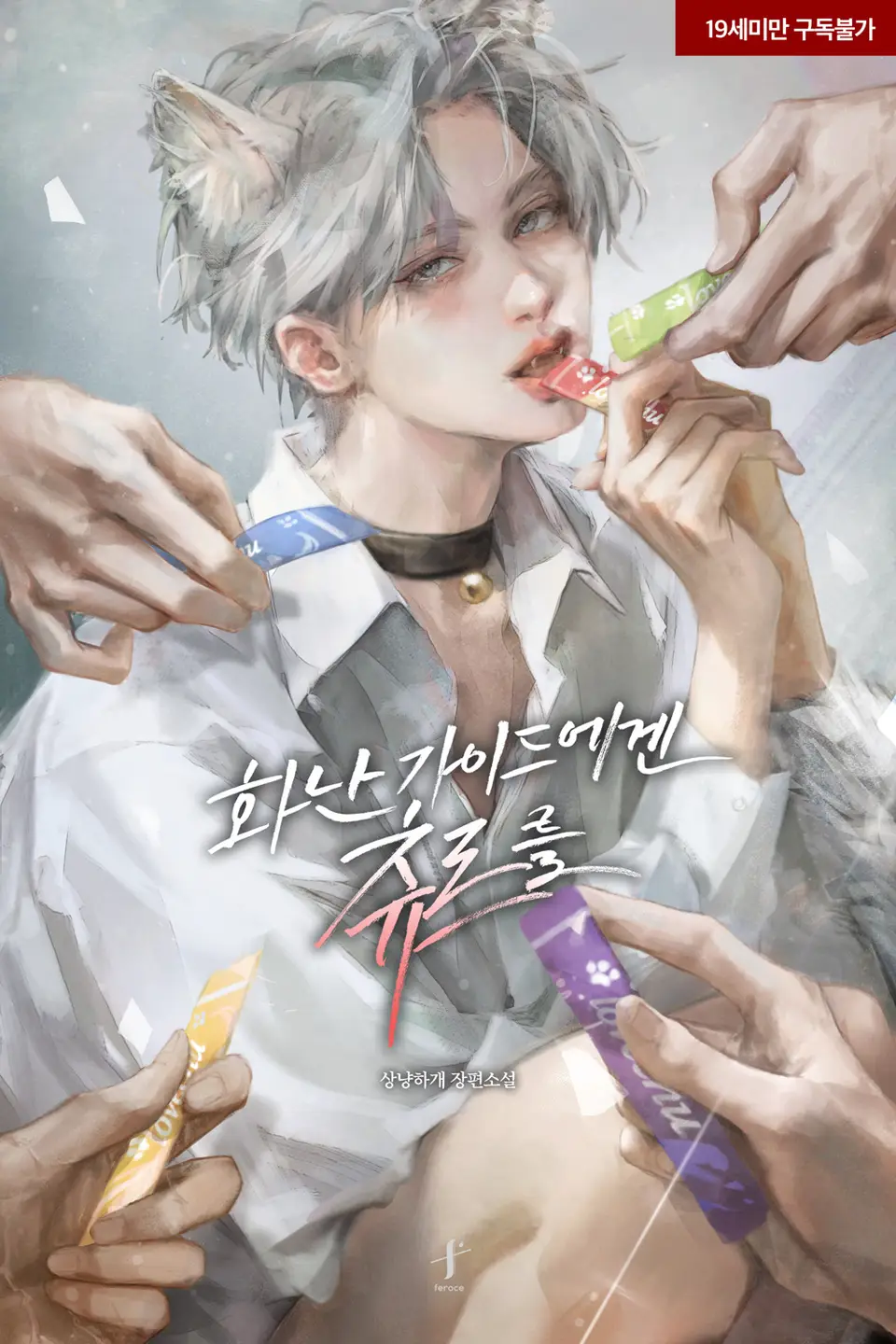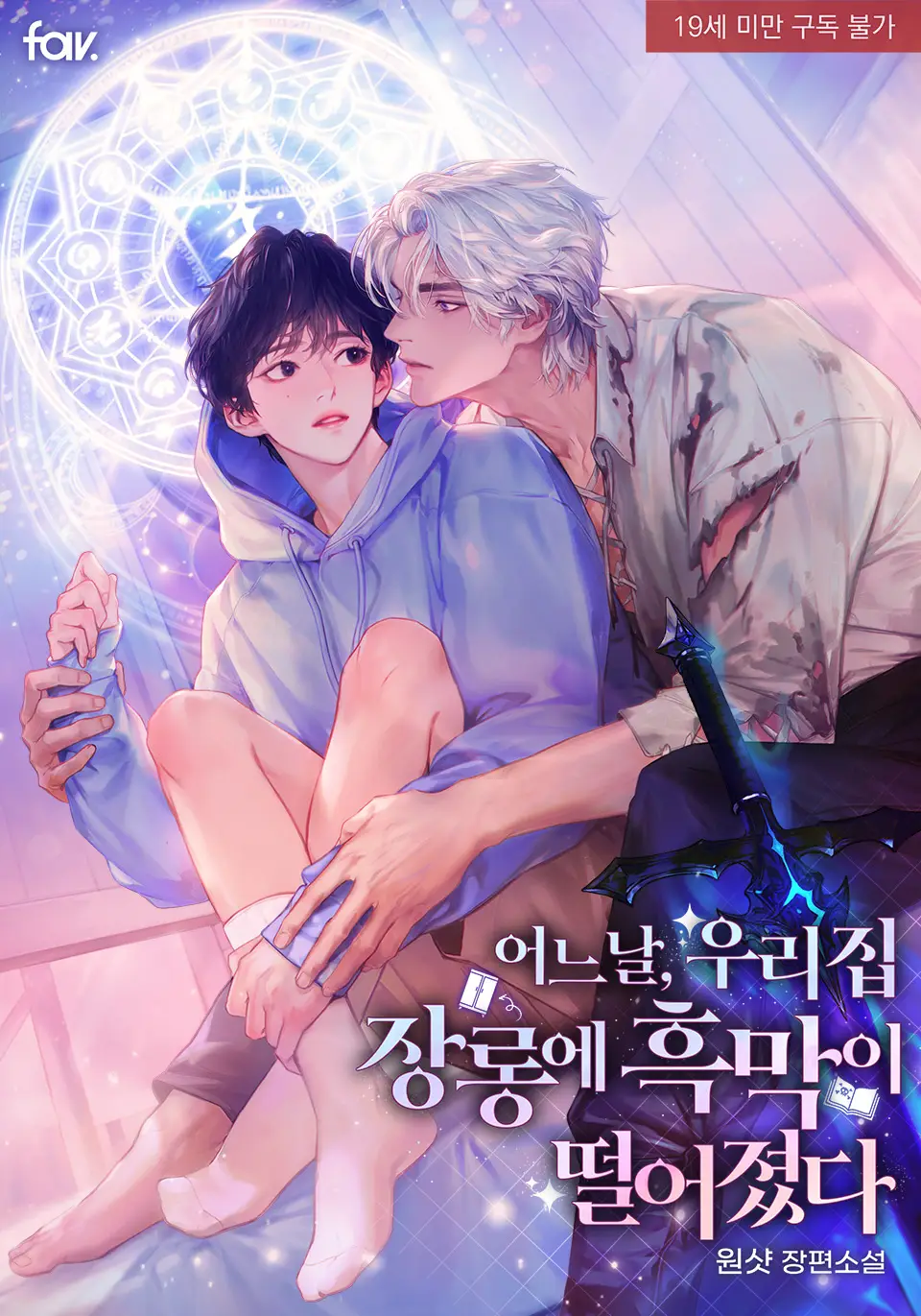Time passed cruelly, following its own path regardless, and various pains gradually faded. As soon as they did, a voice that was newly but deeply engraved in Geun-yeong’s memory echoed.
‘Hey, kiddo.’
The man’s sharp, harsh eyes were rough. Like most people who have lived with wounds, they were eyes that showed hostility toward strangers.
The pointed eye corners that had lingered in his mind for a while gradually became rounder. He was smiling, narrowing his kind eyes with clear pupils. A youthful voice was calling him again.
‘Kiddo. Want hyung to read you a book?’
Since even looking at the ceiling was no use, Geun-yeong tightly shut his eyes and pinched the back of his other hand. He pinched harder. Very hard, enough to make tears well up, hoping that it would clear his mind of all thoughts.
Track 3. One step closer
There were a total of 28 Kyung Jihos on the internet. 16 were Facebook users, and 12 were Twitter users. Since there might be duplicates, 28 was the maximum number; it could be fewer.
Out of the maximum 28 potential SNS users, 22 had their profiles and photos set to private. Among the 6 who revealed their personal information, the most famous was the Governor of North Chungcheong Province, aged 58. Kyung Jiho from Bucheon was 20 years old, and Kyung Jiho from Ansan Siheung was a woman.
The closest match was a 36-year-old man living in Mokpo, whose recent post showed off luxury watches and bags. Being 36 meant he would have been 18 at that time. While searching for more about “18-year-old male student,” Geun-yeong closed the search window. An 18-year-old male student was just a slightly younger adult. It didn’t match the image of the boy he remembered. The man showing off watches and bags wasn’t the Kyung Jiho he was looking for. That was a relief.
But there could be more Kyung Jihos who don’t use SNS, meaning there might be more than 28 Kyung Jihos beyond the internet world.
What were the chances that “that” man he coincidentally met on the last day of surgical ward training was “that” boy? The more he thought about it, the more the forcibly overlapped images in Geun-yeong’s mind—the man’s sharp face and the kind face of that boy from the past—became dissimilar and grew further apart.
Having regretted to the point of his buttocks splitting and his thighs numbing for losing focus enough to forget that Ji Seokhun monitored his every move, Geun-yeong didn’t go near the surgical ward that kept piquing his curiosity after that day. He tried to push the man who kept coming to mind out of his thoughts and focus on his training.
After completing neurosurgery ward training that lasted all morning, it was lunchtime. Geun-yeong finished a meal of neither too little nor too much in an appropriate amount of time. Then, led by his peers who suggested getting some fresh air, he went outside the hospital. Since there were instructions not to wander around in groups giggling while wearing doctor’s gowns, they entered the forest through a back path that seemed to have formed naturally rather than a well-maintained regular walking path.
But. Medical students weren’t the only ones who needed to avoid crowded walkways. Patients desperate for a cigarette seemed to need such spaces too. Geun-yeong and his peers stopped abruptly. About five steps ahead, a man in patient clothes and another in casual clothes were crouched down, puffing out smoke.
“Excuse me, smoking in the hospital is…”
One of the righteous kids in Geun-yeong’s group fearlessly opened his mouth but couldn’t finish.
Sensing their presence and hearing the righteous kid’s words, the patient turned around, and it happened to be that gangster with the dragon tattoo from the surgical ward. The gangster crouching across from him, with thighs so thick that his posture looked very uncomfortable, frowned at the medical students standing frozen like a folding screen.
“Ah, we’ve been caught, hyung.”
The man whose single thigh was as thick as others’ waists extinguished his cigarette by rubbing it against an improvised ashtray made by clearing dry leaves and packing wet soil.
Clicking his tongue in displeasure, Kyung Jiho didn’t immediately put out his cigarette. He took four deep, quick drags until it was barely a butt, then rubbed it against the soil to extinguish the ember. Only then did he rise with a groan, and as he got up, the man beside him also stood, complaining, “Oh my, my legs are numb.” They walked past the medical students, heading in the opposite direction.
The medical students who had been standing like a folding screen slowly turned their heads, following the two gangsters with their eyes, but the gangsters continued on their way regardless.
When the four medical students and two gangsters were about ten steps apart, Geun-yeong, who had been part of the folding screen, ran out before Woo Donghwa could stop him.
“Hey, Geun-yeong! What are you doing!”
Though keeping his voice down so the gangsters wouldn’t hear, he still called out loudly, but he couldn’t stop his friend who had already run off.
“Excuse me!”
Geun-yeong stopped the man from a distance where his arm could reach if stretched. Both the man Geun-yeong called out to and the man beside him turned around simultaneously. Geun-yeong, catching his breath from running, said:
“Smoking is bad for blood circulation, so your wound will heal more slowly.”
“Then give me food. I’m hungry, what do you want me to do?”
“Food can only be given when you pass gas—”
“That’s why I was letting out gas.”
Kyung Jiho raised his index and middle fingers to his mouth, mimicking smoking with a “puff, puff,” then chuckled. It seemed he found his own nonsensical statement amusing. Geun-yeong’s eyes tensed as he tried not to miss the sudden smile. But then.
“Hey, kiddo teacher.”
The tension in his eyes was instantly disarmed by the unexpected “kiddo” attack. The hand that had been mimicking a cigarette at his mouth moved to the forehead of the now seemingly battery-depleted student. The long finger lightly flicked his forehead and then dropped.
“Instead of worrying about others, you should take care of yourself, doc.”
Standing there with a blank face to match his blank expression, Geun-yeong couldn’t think of an appropriate response. He should tell him not to talk nonsense, not to smoke, but the words wouldn’t come out. Not for any other reason, but because his heart was beating too hard.
Why do you keep calling me kiddo, I’m the tallest among those standing back there, why do you keep calling me kiddo, are you perhaps remembering me while pretending not to know me—he couldn’t ask any of these questions.
Standing there with his mouth hanging open, frozen like a jangseung at the edge of a forest rather than a folding screen this time, Geun-yeong watched as the man snorted again, turned around and walked away.
“I tell you, hyungnim. You should show respect to the doctor. You never know what might happen in the future.”
“Forget it. Too much trouble.”
“Even if he’s a student, a doctor is still a doctor. How can you call him a kid or whatever so carelessly?”
“Aish, well, his name is Saetbyeol, so what am I supposed to call him? ‘Saetbyeol-ah’? Fuck, that’s cringeworthy.”
“You could say ‘Student Doctor’ or ‘Doctor Saetbyeol,’ couldn’t you?”
“Forget it. Fuck. I’m hungry, so shut up.”
“If I shut up, will that make you less hungry? How does that work?”
The conversation between the two men gently piled up in Geun-yeong’s mind, where he couldn’t hear it clearly at first because of his own heartbeat, before gradually fading away.
* * *
The man was discharged.
Around that time, Geun-yeong snuck into the station while the first-year resident briefly left the computer. Taking advantage of the nurses who were too busy to pay attention to mere interns, he accessed the computer system that the first-year had failed to log out of. He entered the medical record number he had memorized, opened the patient information to find the phone number, and saved it. Not on his phone, which was regularly checked, but in his mind. His heart was pounding. Not just because he was doing something akin to theft.
He was confused about why his heart pounded when thinking about that man—whether it was because he missed the person from the past, or because he hated the man who didn’t remember him, or for some completely different reason unrelated to past memories.
Trying to read his own heart, he recalled the phone number whenever he had a moment. Though he knew better than anyone that he never forgot something he had seen once, he still worried he might forget, so he repeatedly recited the eight-digit number to himself.
Then Friday came, the last day of the semester’s clinical rotations and the end of the term.
“First round at Gomo’s! Second round at Blue Frog!”
Park Sanghun, the class representative, announced the after-party locations in his train-whistle voice. Then Woo Donghwa, who usually handled finances, was collecting the list of people going to the second round and gathering fees. “Those without cash, transfer it to the account,” he said, posting the account number in the group chat.
Ordinarily, Geun-yeong would join for the first round dinner but rarely for the second round. Not that he never went. He maintained a careful balance so people wouldn’t say “Ji Geun-yeong never comes to these things.” There was no other reason—Ji Seokhun had instructed him that way. Come home early without going to the second round unless there was a special reason.
“Geun-yeong, are you going?” Donghwa asked.
After a moment’s thought, Geun-yeong nodded. “Yeah.”
“No, I mean, are you going to the second round?”
“I said I’m going.”
“Really?”
With a face brightening with delight, Woo Donghwa said, “Okay, hang on,” and went to tell Park Sanghun. “Geun-yeong’s coming too.”
“Geun-yeong’s coming too?” Park Sanghun asked with unnecessary volume in his surprise. Hearing this, Sanghun’s friend repeated the question with only slight variation.
“Geun-yeong’s coming to the second round too?”
All of Sanghun’s friends had loud voices. They asked so loudly that all the classmates gathered in small groups looked first at the class rep, then at Geun-yeong.
Ji Geun-yeong, whose father was Ji Seokhun and mother was Yeom Eunyeong, with a memory like a digital camera, wasn’t ostracized by his friends because he was an adopted child with diabetes. The principle was that feelings of jealousy and envy were offset by sympathy and pity.








